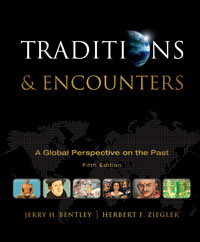1 A) he was blamed for distorting history. B) he inflicted this pain on himself in order to be a eunuch. C) his view contradicted the emperor's judgment. D) he was a Legalist. E) None of these answers is correct. 2 A) an educator and political advisor. B) a man involved in the practice of statecraft as an ambitious official. C) a great traveler and writer of deep philosophical treatises. D) a powerful and wise emperor. E) None of these answers is correct. 3 junzi , or "superior individuals," Confucius meantA) wealthy men of the ruling elite. B) strong and brave warriors. C) individuals who withdraw from society and live in harmony with nature. D) superior individuals with a broad view of public affairs. E) writers of important philosophical tracts. 4 A) Daodejing. B) Book of Songs. C) Book of History. D) Analects. E) Book of Rites. 5 A) the evil nature of human beings could be improved by moral education. B) government should be organized through benevolence and humane action. C) government should be run by laws. D) people should strive to live in harmony with nature. E) All these answers are correct. 6 dao meansA) natural laws such as those defined by modern physics. B) the original force of the cosmos, an eternal and unchanging principle that governs all the workings of the world. C) passive and yielding forces that exist only in water and empty spaces. D) living according to ren , li , and xiao . E) All these answers are correct. 7 wuwei wouldA) motivate himself or herself to change the world. B) follow high ethical standards and strive for success. C) try to govern the state according to benevolent paternalism. D) go with the flow of the cosmos and live in harmony with nature. E) All these answers are correct. 8 A) the difference between Confucianism and Daoism was as clear-cut as day and night. B) Confucianism and Daoism were not mutually exclusive but, in many people's eyes, complemented each other. C) the Chinese, like other peoples, were active in daytime and became passive at night. D) Daoism was associated with darkness and evil and Confucianism with light and good. E) people often pretended to be Confucians to others while secretly practicing Daoism. 9 A) encouraged commerce, entrepreneurial activity, and education. B) won the people's support by providing them with legal rights. C) sought to rule according to principle of benevolence. D) encouraged agricultural cultivation and military service. E) All these answers are correct. 10 A) ordered the burning of most books. B) ordered workers to link defensive walls into one barrier. C) sentenced scholars to be buried alive. D) standardized the written script. E) All these answers are correct. 11 A) a great terra-cotta army of Qin soldiers and cavalry. B) sacrificed slaves, concubines, and craftsmen who designed and built the tomb. C) a map of the emperor's realm on the ceiling. D) an underground palace lined with bronze. E) All these answers are correct. 12 A) a military coup. B) waves of revolts. C) deadly epidemics. D) violence of court factions. E) invasions by nomadic people. 13 A) was the last of the Qin emperors. B) was a brilliant and charismatic leader who relied on no one. C) constructed the most highly decentralized state in China's history up to that point. D) was captured and killed by nomadic Xiongnu warriors. E) None of these answers is correct. 14 A) as the "First Emperor." B) as the "Martial Emperor." C) as a "socialist emperor." D) for his successful conquest of central Asia. E) None of these answers is correct. 15 A) the statecraft policies of Legalism. B) political science and the study of law. C) Daoism. D) Confucianism. E) None of these answers is correct. 16 A) he wanted to pacify them and create a central Asian corridor to trade. B) other methods did not effectively pacify the Xiongnu and stop their raids. C) the powerful Xiongnu leader, Maodun, killed his father. D) he wanted to capture the wealthy Xiongnu cities. E) All these answers are correct. 17 A) Sericulture was first discovered by the Chinese during the Han dynasty. B) Chinese silk was finer than others because of advanced sericulture techniques. C) During Han times, Chinese silk became a prized commodity in India, Persia, Mesopotamia, and the Roman empire. D) During the Han, sericulture expanded from the Yellow River valley to most of China. E) Chinese silk thread was made from unraveling silkworm cocoons. 18 A) bamboo strips. B) silk. C) paper. D) papyrus. E) parchment. 19 A) restore land that had been taken from the royal family. B) solve the problem of court factions. C) redistribute land more equitably. D) conquer the Xiongnu. E) All these answers are correct. 20 A) the Yellow Turban uprising. B) the invasion of the Xiongnu. C) the rise of the "socialist emperor." D) the moving of the capital to Luoyang. E) All these answers are correct.





